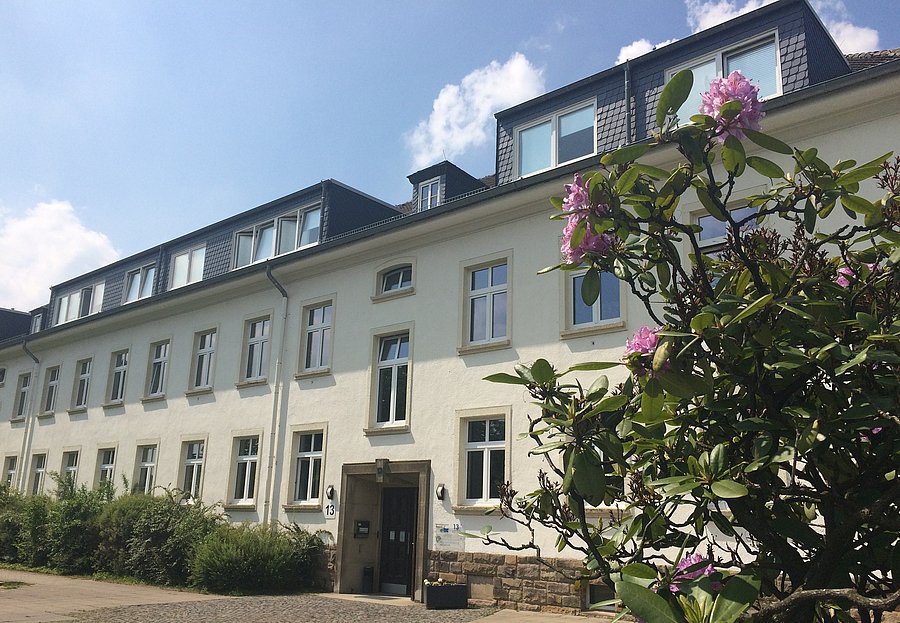
The Wuppertal "Schwebebahn", Photo: Colorbox.de
Information about the University of Wuppertal and the Center for Continuing Studies
UNIVERSITY OF WUPPERTAL
Wuppertal is located in the center of Europe. During the 18th and 19th century the city was the heart of one of the biggest industrial regions in Europe. Wuppertal currently has about 349,000 inhabitants and is located in the lovely narrow valley of the river Wupper. The scenery in this area is particularly delightful, with its wooded hills, meadows, gardens and fields.
In Wuppertal you will also find the famous suspension monorail, the Wuppertal Schwebebahn.
Some 22,000 students benefit from the high-level academic environment of the university and its commitment to research and international collaboration.
The University of Wuppertal was founded in 1972. Its 9 faculties contain a total of 31 departments.
Teaching and research are focused in 6 inter-disciplinary teaching and research profiles:
(a) BUILDING BLOCKS OF MATTER, EXPERIMENT, SIMULATION, AND MATHEMATICAL METHODS
(b) EDUCATION AND KNOWLEDGE IN SOCIAL AND CULTURAL CONTEXTS
(c) HEALTH, ILLNESS PREVENTION AND MOVEMENT
(d) LANGUAGE, NARRATION AND EDITING
(e) NATURAL ENVIRONMENT, ENGINEERING AND SAFETY
(f) BUSINESS, INNOVATION AND ECONOMIC CHANGE
Mechanical engineering has been taught in Wuppertal for 150 years (since 1863). It was one of the founding disciplines of the university in 1972.

The University of Wuppertal, Photo: Sebastian Jarych
Find more detailed information on: www.uni-wuppertal.de
THE CENTER FOR CONTINUING STUDIES (ZWB)
The University of Wuppertal provides a large number of programs for international students. Continuing studies and certificate courses are offered by the Center for Continuing Studies (ZWB).
In cooperation with the faculties and departments and with the assistance of the International Office, it coordinates further training opportunities for both local and international students and offers different types of certificate programs. Certificate courses are designed to meet the present requirements on science, society and profession. They have a highly specific substantial orientation and are
commonly organized in modules.
International exchange programs during undergraduate studies are built upon previous academic achievements.
Continuing studies enable students to get in touch with new methods, models and results of research, theory and practices.
A sociocultural framework offer complements and accompanies all programs, containing i.a. an intercultural training, a German language course and excursions.

The Center for Continuing Studies (ZWB)
